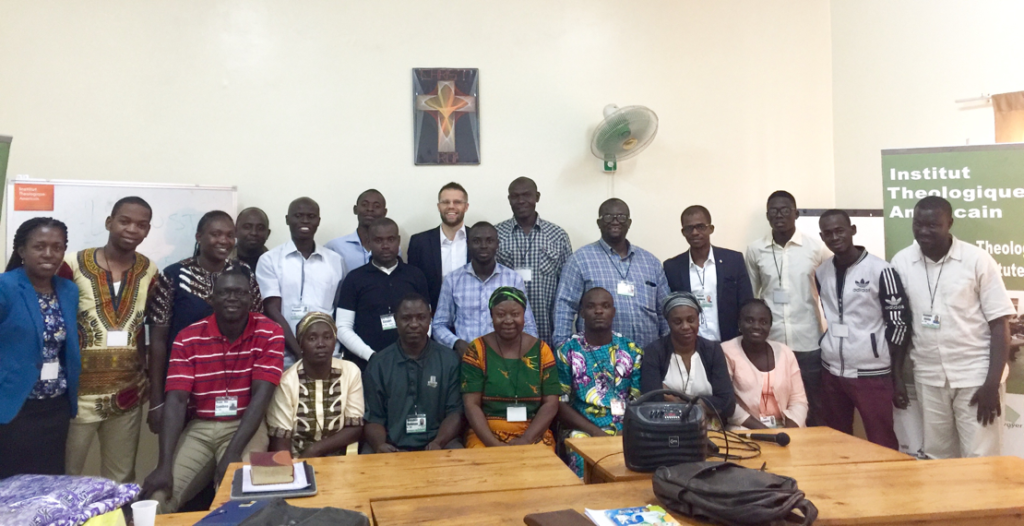Last week, I spent five, full days with twenty-four African pastors and community leaders in Dakar, Senegal. Dakar is the westernmost tip of Africa, and I was invited to cross the continent to give these women and men an intensive course in Christian Ethics.
Many things from this intense week impressed and inspired me, including these leaders’ deep thoughtfulness and passion for their communities. But what moved me the most was
the thick sense of love and affection that grew between us as we studied, discussed (and debated!), broke bread, and went out into the community together.
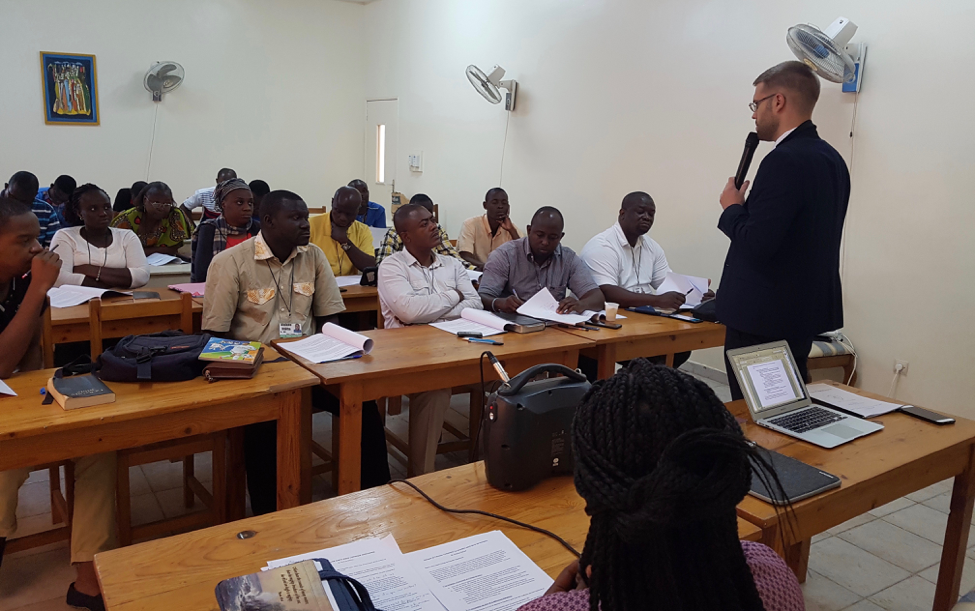
Ten nations were represented in the classroom. We came from different languages, cultures, economic backgrounds, and theological opinions. For my part, I had never been to West Africa before, and my students were total strangers to me when I arrived. And yet by Friday afternoon, we embraced one another with the warmest sense of love and cherishing. In those five days, we had become a new family, and we already started missing one another before we even said goodbye.
I was reminded of Paul’s beautiful words in Ephesians 2: Christ has “destroyed the dividing wall” between us and created “one new humanity” with his self-giving love.
These bonds of affection across boundaries were especially powerful to me in Dakar. Not far off the coast of the city is the infamous Gorée Island, the last stop on the African slave trade.
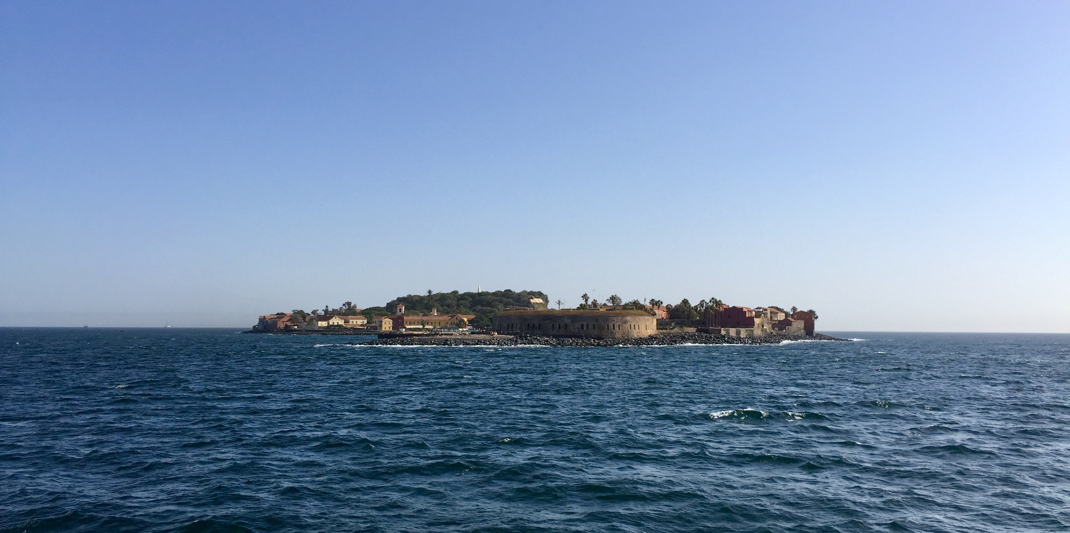 Visiting Gorée was extremely sobering and surreal. A few generations ago, countless African men, women, and children were captured like animals, chained in barbaric prison cells, sold to Euro-American slavers, and shipped across the Atlantic Ocean from this dungeon. They would either die on the voyage to the “New World” or spend the rest of their lives in dehumanizing servitude.
Visiting Gorée was extremely sobering and surreal. A few generations ago, countless African men, women, and children were captured like animals, chained in barbaric prison cells, sold to Euro-American slavers, and shipped across the Atlantic Ocean from this dungeon. They would either die on the voyage to the “New World” or spend the rest of their lives in dehumanizing servitude.
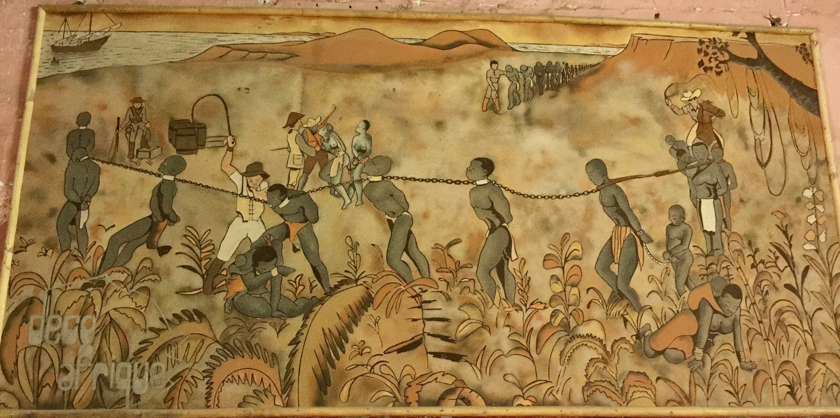
Staring through the Door of No Return was probably the most disturbing and maddening experience at the House of Slaves.
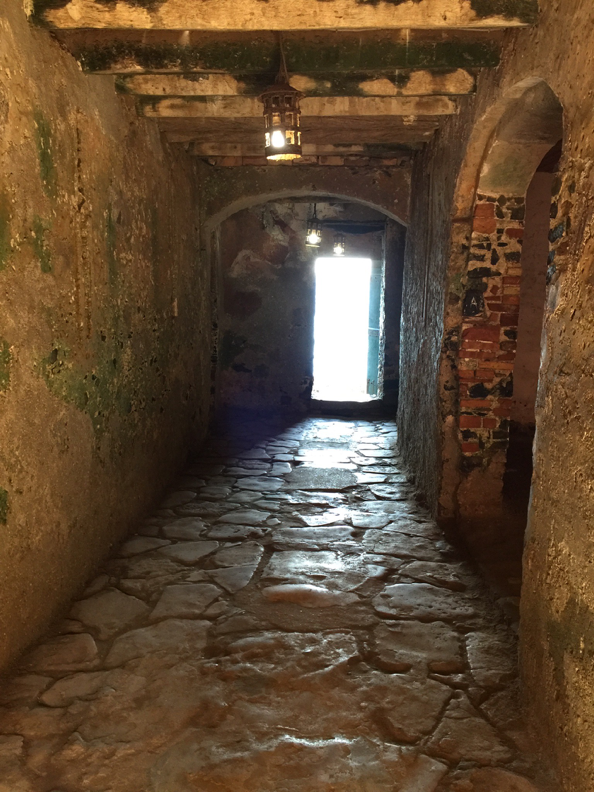
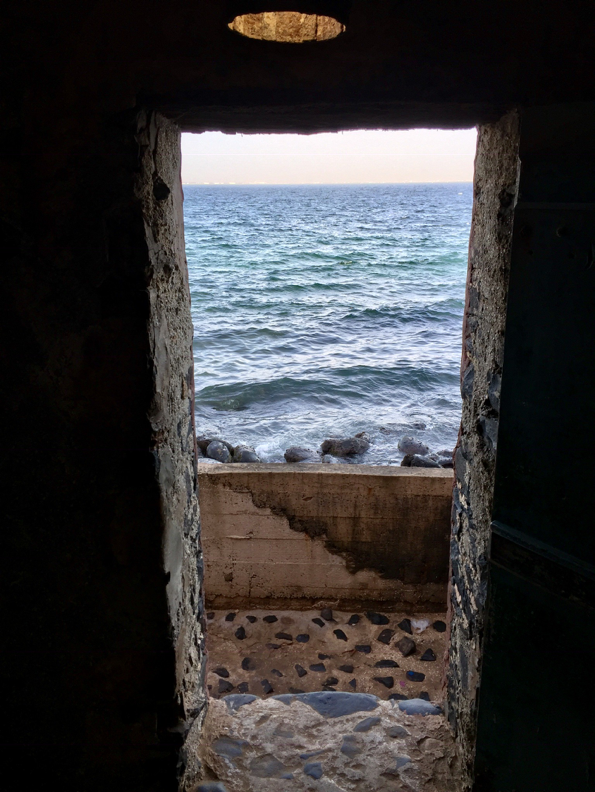
This is the door where hundreds of thousands, if not millions, of African people were forced into ships to cross the Atlantic. It was eerie and agonizing to stop and think that so many human beings had passed through this tunnel in chains, staring out over the endless ocean, never to see home or family or freedom again. It was nauseating to remember that their slavers and the countries that bought these people identified themselves as “Christians” and “Christian nations.”
How are people – how are Christians – able to do such horrific things to one another? It seems that we are planting these seeds again today: we stop seeing one another as fellow human beings, much less as precious sisters and brothers. Instead, we see only “others,” enemies, or even “animals” and “evil spirits.” Nationalism becomes an intoxicating drug that makes us see ourselves as superior and willing to exploit others for our own comfort, safety, and prosperity. Before long, the pain and suffering of others no longer makes us shudder. We call ourselves Christians while dehumanizing people made in God’s image.
So as we hugged and kissed one another in Dakar, I felt a revolutionary protest pulsing out of that humble classroom. Across every boundary of nationality, skin color, language, culture, and economy, we not only saw one another as fellow humans and classmates. We embraced one another as cherished sisters and brothers whose departure – in full freedom and flourishing – caused us sorrow.
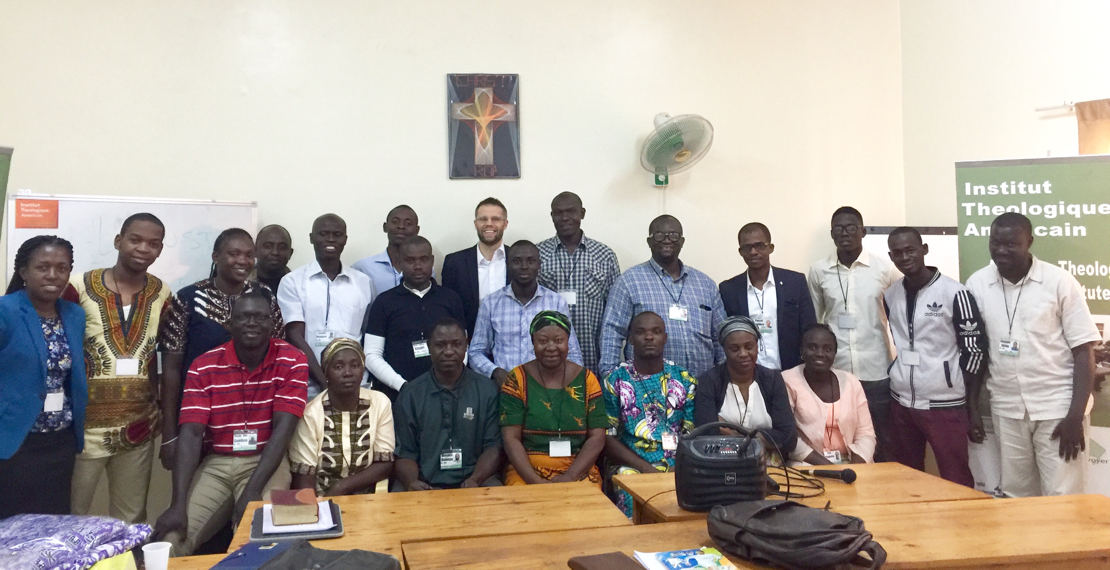
My prayer as I left Dakar was that Christians around the world – but especially Christians in the United States where white nationalism is back on the rise – would reawaken themselves to the precious gift of sharing life with others. May we cross boundaries, embrace one another, and discover the tremendous beauty of growing from strangers into family.
Doing so today is no longer an act of simple decency. It’s a rebellious protest against the dehumanizing forces of our world that would have us look at one another with indifference, suspicion, fear, and hatred. For Christians, loving across boundaries is the basic requirement of claiming any allegiance to Christ, the crucified messiah who “destroyed the dividing wall” and created “one new humanity” in his love.
What a divine gift to spend a week with these dear sisters and brothers. I’m deeply grateful for their hospitality and look forward to our reunion.



